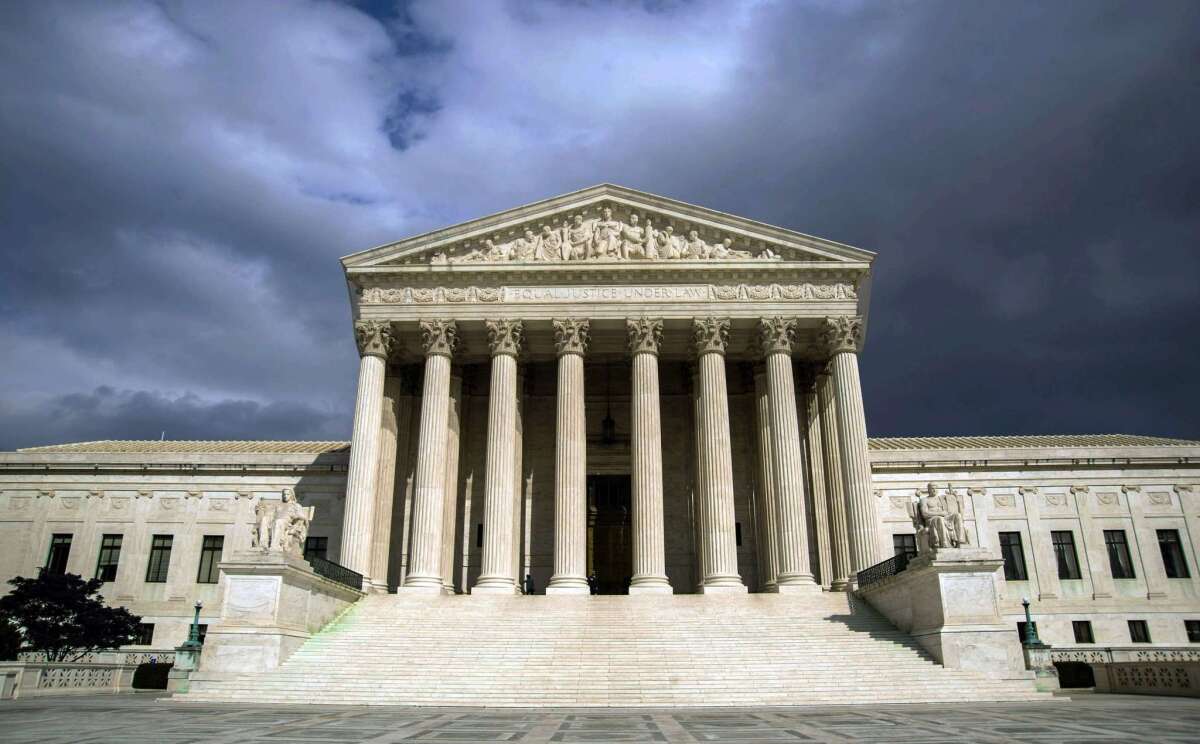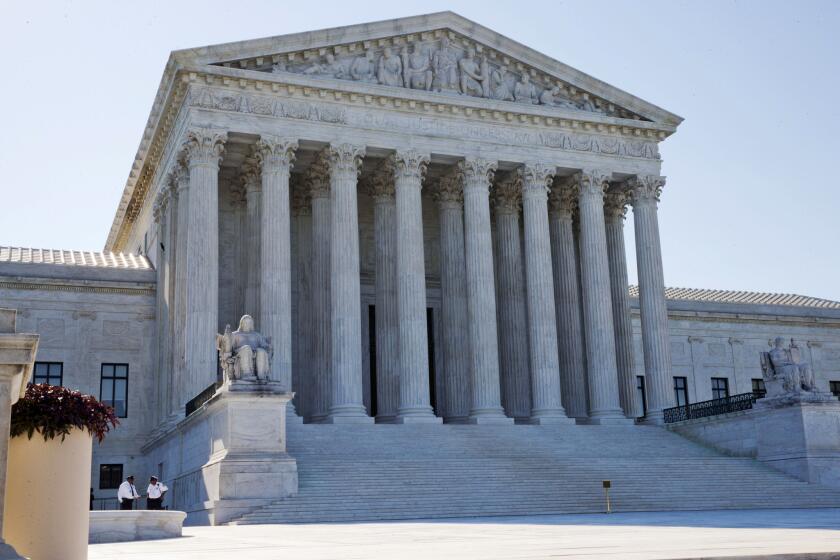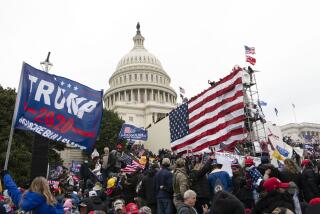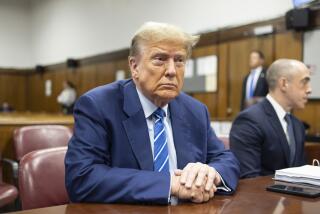Supreme Court appears divided over Trump’s tax and bank records

WASHINGTON — U.S. Supreme Court justices sounded open Tuesday to shielding President Trump from broad demands by House Democrats to obtain many years of his tax returns and financial records, while stopping short of giving Trump the kind of absolute protection he is seeking.
During more than three hours of arguments, the justices, both conservative and liberal, appeared to reject the main rationales cited by both sides in this clash between the White House and Congress.
On one side, lawyers for Trump insisted he was entirely immune from legal demands that he reveal his personal records because of his special status as the nation’s chief executive. The justices were quick to reject that claim, noting that President Nixon was forced to turn over the Watergate tapes and that President Clinton was forced to answer personal questions under oath based on a sexual harassment suit.
But they were equally skeptical of the claim that House committees were free to demand from the president huge volumes of personal information, without limits, because the information in theory might lead to new legislation. Trump’s lawyers said such subpoenas could be used to harass a political opponent.
Chief Justice John G. Roberts Jr. expressed concern over the idea that there are no limits on Congress’ power to obtain personal information through a subpoena, and he pressed the House’s lawyer to cite a “plausible example of a subject” that would be off-limits to a House subpoena. House counsel Douglas Letter failed to give an example.
Early in the argument, Roberts said the court needed to weigh and “balance the competing interests” on both sides. And by the argument’s end, it sounded as though the high court may hand down a mixed decision that does not give a clear win to either Congress or the president.
There did not appear to be a majority to rule that Trump’s accountants must immediately turn over 10 years of his financial records to the House committees. If Roberts takes the lead, the court could issue an opinion that both rejects Trump’s claims that he is above the law, but also requires the House to show why the president’s personal financial information going back to 2010 is relevant to new legislation.
The justices gave a more favorable hearing to New York prosecutors who sought Trump’s business records as a part of a grand jury investigation. It is typical for these grand juries to seek private records as a part of a confidential investigation. Prosecutors in New York said they were looking into questionable loans and business deals involving Trump and his organization.
The president’s lawyers argued that if New York grand jury and Dist. Atty. Cyrus Vance are permitted to obtain Trump’s financial records, the president — and all future presidents — will be vulnerable to harassing subpoenas from 2,300 other county district attorneys across the nation.
But that claim seemed to get little traction, and New York prosecutor Carey Dunne scoffed at the idea.
“The supposed floodgates have been open for generations, and there’s never been a flood,” he said.
However, if the court rules for the prosecutors in the case of Trump vs. Vance, it does not mean the American public will see Trump’s taxes before the November election. The New York prosecutor assured the justices that confidential information obtained by the grand jury will remain secret.
Tuesday’s argument featured a rare high-level battle over the powers of all three branches of the U.S. government.
At issue was whether the president had “absolute immunity” from complying with subpoenas that sought his personal financial records. Other presidents since the 1970s have voluntarily disclosed their tax returns, but Trump has refused to do so.
The fight over the House subpoenas, in turn, raised the question of whether a House committee has unlimited power to obtain private information from the chief executive. In the past, the court has agreed that Congress has the power to investigate, but it has not ruled squarely on a clash between the House and the president.
And for the justices, the dispute raised the question of whether the high court had the legal authority to resolve an essentially political dispute between a Republican president and a Democratic-controlled House of Representatives. Last month, the justices asked for extra briefing on that question.
Looming over Tuesday’s argument were two landmark decisions on presidential power, both of which were unanimous defeats for the White House. In 1974, the justices rejected Nixon’s claim of executive privilege and ruled he must turn over the tapes of his Oval Office meetings to the Watergate special prosecutor. That decision led directly to Nixon’s resignation.
In 1997, the justices ruled unanimously that Clinton must answer questions under oath in response to a sexual harassment lawsuit that arose from his time as governor of Arkansas. That deposition, in turn, triggered an expanded investigation and ultimately his impeachment for lying under oath.
The court heard a pair of cases on Tuesday. The first concerned the three House committees that sent subpoenas to Trump accountants Mazars USA and Deutsche Bank, seeking his tax records and years’ worth of financial records. The committees were relying on their power of oversight, which is based in the power to write new legislation. Trump sued to challenge the subpoenas, but lost in the U.S. appeals courts in Washington and New York.
In November, the justices intervened at Trump’s request and put the subpoenas on hold. They then voted to hear his appeals in Trump vs. Mazars and Trump vs. Deutsche Bank.
The second argument focused on grand jury subpoenas issued by Vance. His office was investigating the alleged hush money payments that went to a porn actress and a Playboy model who both said they had sex with Trump.
Usually, grand juries have the power to obtain information in confidence. But Trump sued to challenge the subpoenas and to claim that the president was off-limits to any criminal investigation while he was in the White House. The appeals court in New York also rejected that claim.
Justices will hear three cases in which President Trump claims immunity from investigations seeking his financial records, setting up a ruling on the fundamental question of separation of powers.
More to Read
Get the L.A. Times Politics newsletter
Deeply reported insights into legislation, politics and policy from Sacramento, Washington and beyond. In your inbox three times per week.
You may occasionally receive promotional content from the Los Angeles Times.












